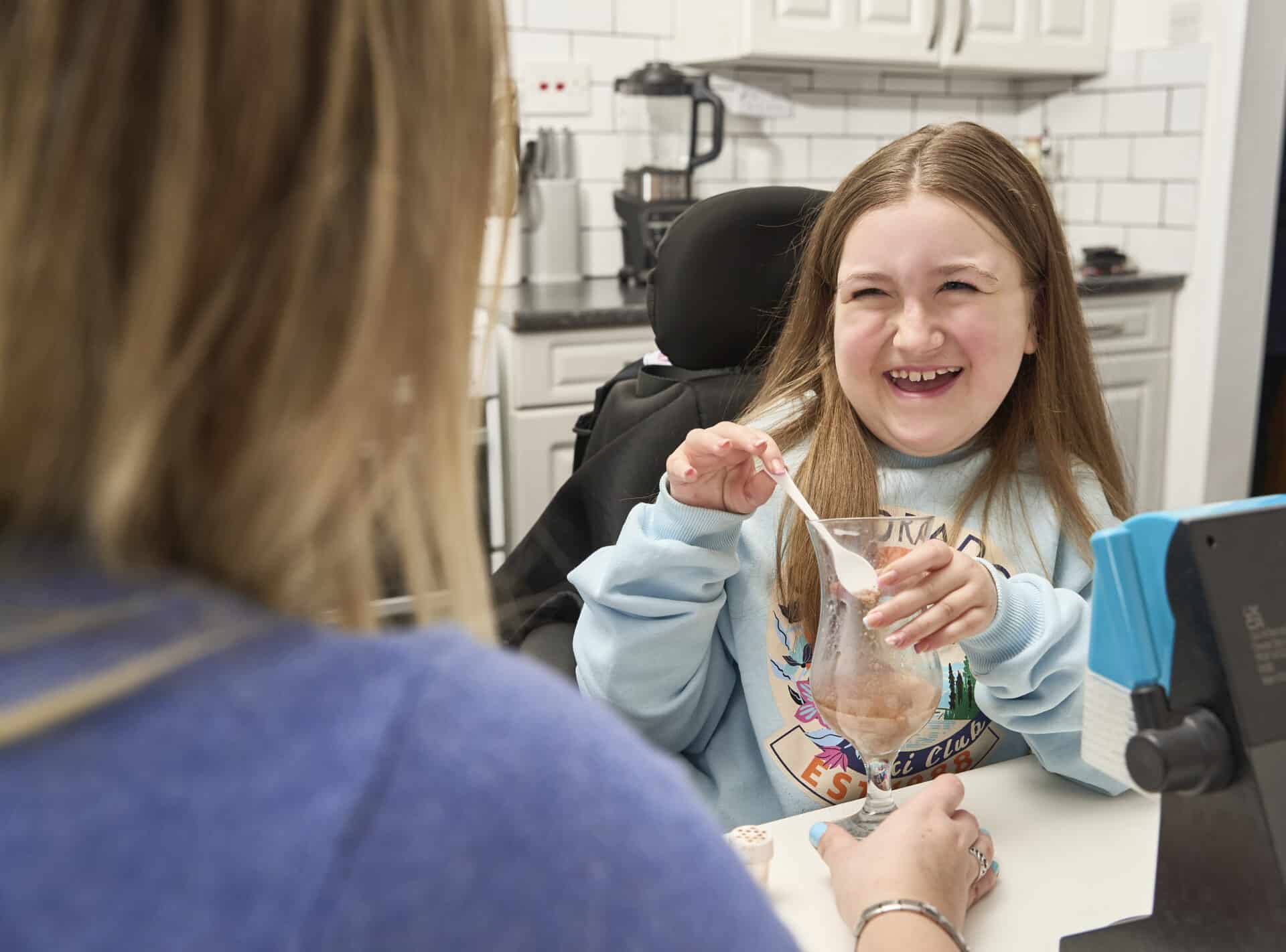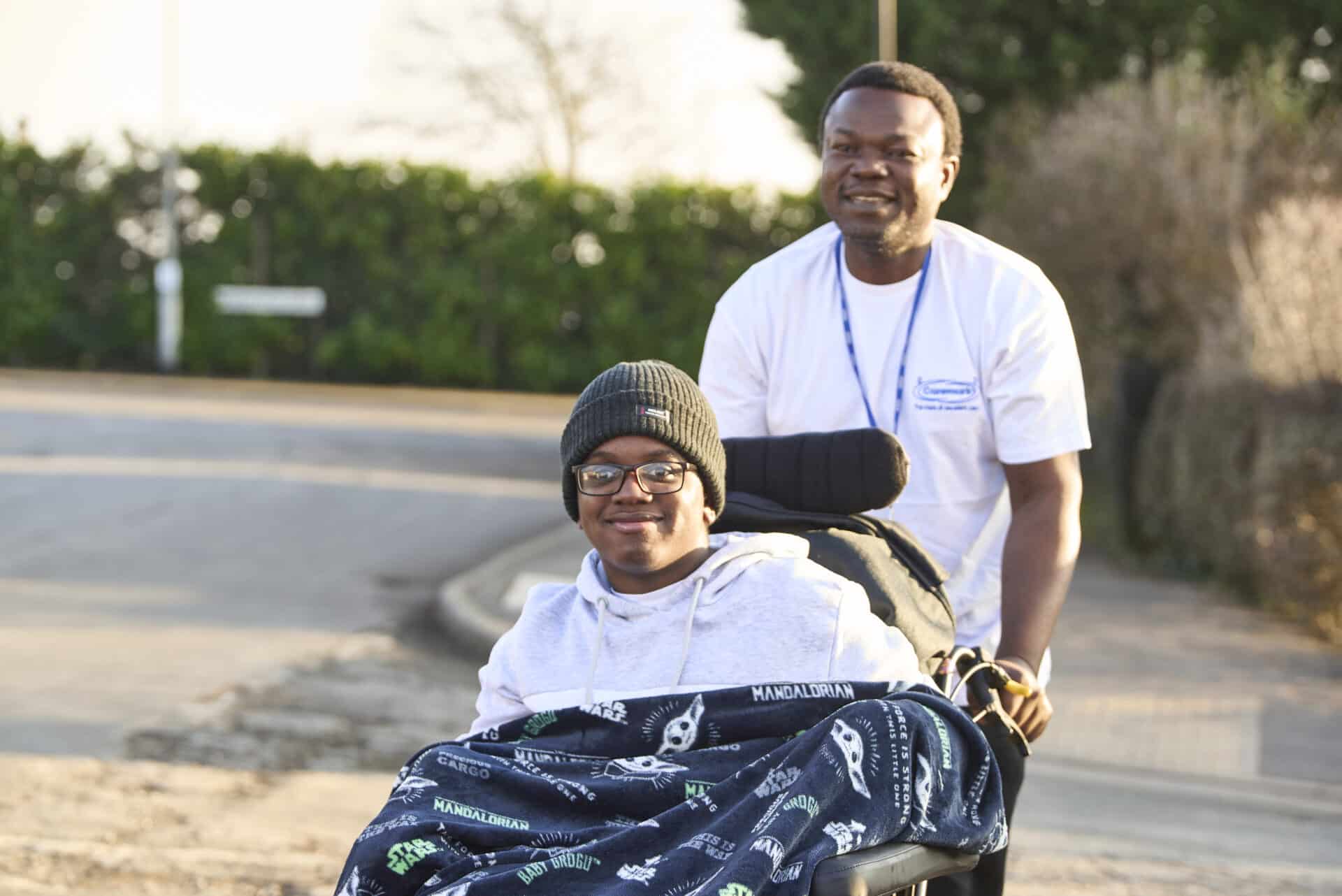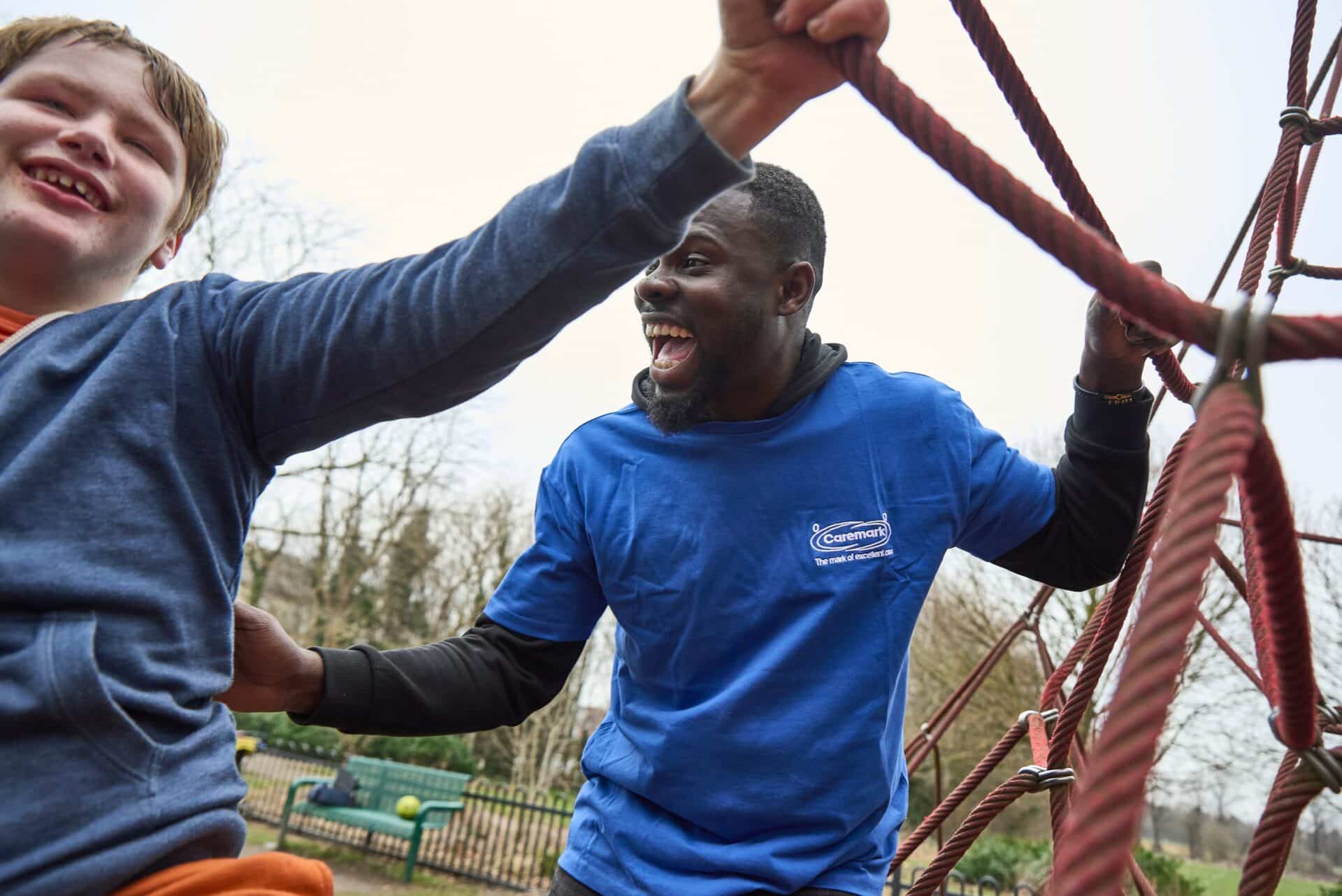Children’s Care in Dover
As parents you know that every child is different. We work with you, and with other health professionals involved in your child’s care, to ensure that the care we provide meets the needs of your child, however complex and specialised those needs may be. We appreciate how important it is to you that your child is cared for in an environment with trust, reliability and empathy at its heart.
All our child sector care assistants complete specialist training that prepares them to care for children with such conditions as: ADHD, autism, learning disabilities, behaviours that challenge, hypermobility, gastro-oesophageal reflux disease, congenital myotonic dystrophy and global development delay.

Children’s Care and Autism
Autism spectrum disorder (ASD) in children presents both significant challenges and deep insights into individual personality traits. This condition, affecting social interactions, communication, interests, and behaviours, manifests uniquely in each child but often shares certain identifiable signs.
From as early as 12 to 18 months, some children may show early indicators of ASD. These can include not responding to their name, avoiding eye contact, or not following gestures like pointing. As they grow, you might notice a child with autism not engaging in much pretend play, an activity common among their peers. These signs are essential cues for parents and care assistants to seek professional advice.
Autism can appear differently between genders. Boys are often diagnosed more frequently, possibly because their symptoms are more visible. Girls, on the other hand, might mask their symptoms by mimicking social interactions seen in other children, making their condition less noticeable.
The journey of understanding and supporting a child with autism is a continuous learning process. Each child’s unique differences offer an opportunity to celebrate their individuality while providing the support they need. Recognizing the early signs and getting professional guidance is crucial. It leads to better outcomes through tailored interventions that help these wonderful children thrive in their own unique ways.
Children’s Care and Learning Disabilities
Learning disabilities in children represent a spectrum of neurodevelopmental disorders that can significantly impact the ability to grasp basic academic skills like reading, writing, and mathematics. These challenges, which often become noticeable as children enter school, stem from differences in brain function and development.
Learning disabilities, such as dyslexia, dyscalculia, and dysgraphia, hinder specific areas of learning. For instance, dyslexia primarily affects reading and language processing, dyscalculia involves difficulties with numbers and children with dysgraphia may find writing and other fine motor skills challenging.
Addressing these disabilities involves a comprehensive approach tailored to each child’s unique needs. In the UK, this support often starts with an assessment by educational professionals, followed by an Education, Health and Care (EHC) plan if necessary. Most children with special educational needs (SEN) attend mainstream schools, where inclusive education aims to support them alongside their peers. This inclusion is crucial for both academic and social development.
Support can also extend beyond the classroom. Therapies such as speech and language therapy, and sometimes medication, help manage symptoms. Additionally, support groups provide a network for parents and children to share experiences and strategies.
Understanding and supporting children with learning disabilities is vital for allowing them to achieve their potential and lead fulfilling lives.


Personalised Children’s Care
Every child is unique, and recognising this is the cornerstone of developing effective care plans for children receiving support. These plans are meticulously tailored to meet the individual needs of each child, ensuring that his or her specific circumstances, strengths, and preferences are addressed. The process begins with a comprehensive assessment that includes not only the child but also their family, making it a collaborative effort to define the support needed.
In this person-centred approach, the child’s own goals and aspirations are integral to the planning process. This method not only respects children as individuals but also actively involves them and their families in the decision-making process, thereby fostering a sense of ownership and control over their care. The care plan outlines how support will be provided, ensuring it aligns with what children and their families consider most important for their well-being and development.
Moreover, these care plans are dynamic; they are regularly reviewed and adapted to ensure they continue to meet the evolving needs of the child. This adaptive approach helps in providing ongoing support that can adjust to the child’s growth and changing circumstances, always focusing on enabling the child to achieve their potential while supporting his or her independence and integration into community life.
FAQs
Our service is designed to support children with complex needs in their own homes. This includes assistance with personal care, daily activities, and coordination with other health services. We also provide emotional support and encourage participation in enjoyable activities.
We work closely with the child, their family, and other healthcare professionals to develop a detailed care plan. This plan is continuously reviewed and updated to ensure it meets the changing needs of the child.
Our care workers undergo comprehensive training which covers the necessary skills to care for children with complex needs. This includes training in specific conditions, communication, emergency procedures, and the promotion of dignity and independence.
Why choose Caremark?
You’ll be in safe hands – our services care for over 14,000 customers.
Personalised care
We provide care that is an individual as you are. You are unique, so your care plan must be too!
Excellent standards
Our quality of care is exemplary. You are extremely important to us, and we care for you like you were our own family.
Cheery visits
We employ our staff based on their personalities – caring, compassionate, cheery and fun!
Allocated Care Assistant
We spend time matching our Care Assistants with our customers and maintaining that pairing.
Family contact
We are open and transparent with family members and share details of each visit when requested.
Confidentiality
Customer confidentiality is extremely important to us. We are fully compliant with GDPR and data protection.